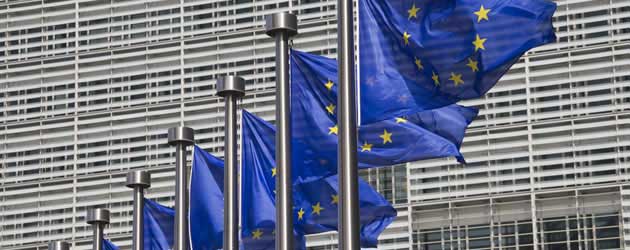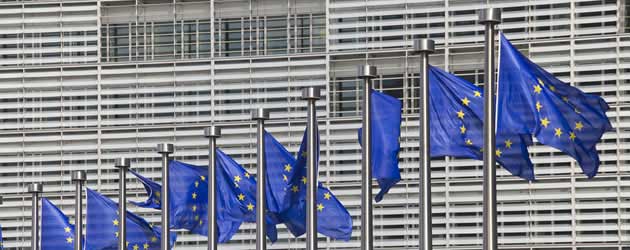
The Euro (EUR) shrugged off earlier disappointing sentiment data to firm against the Pound (GBP) after the latest inflation data out of Germany came in better than economist forecasts.
Earlier in the session, the Euro came under pressure against most of its major peers after a report released by the European Commission showed that sentiment in the 18-member Eurozone deteriorated again in September to the lowest levels seen since late 2013.
According to the data, economic sentiment across the single currency bloc fell to a reading of 99.9 in September, down from the previous month’s figure of 100.6. Economists had been forecasting for a drop to a reading of 100.
The report confirmed that consumer confidence has fallen for four consecutive months and retail sales sentiment also eased. The drop in confidence was blamed on concerns caused by the standoff between the EU and Russia over the Ukraine crisis.
‘Highlighting the fact that Putin is behind much of the decline, the countries in Eastern and Central Europe, which have tighter trade and energy links with Russia, have fared worst since the start of the year. Sentiment has fallen by 4 to 6 points since February in the Baltics, for example, after Russia annexed Crimea at gunpoint in March.The ceasefire in Eastern Ukraine has relegated the conflict from the top headlines a bit, raising hopes that economic confidence might start recovering soon.
‘Resilient global demand growth and the ECB stimulus should help stabilise the economy and if Putin does not go any further and the crisis in the Middle East can be contained allow the Eurozone economy to return to stronger growth at the end of the year. However, Italy and France clearly need more than that and require significant progress in their structural reform agenda to benefit proportionately from any overall upswing,’ said Christian Schulz from Berenberg.
The Pound also came under pressure earlier in the session after a report released by the Bank of England showed that the number of UK Mortgages approved fell more than forecast in August, adding to signs that the nation’s property market is cooling down.
The number of mortgages approved by UK banks fell from July’s figure of 66,100 to 64,212 in August, the lowest number seen since May. Economists had been calling for a figure of 65,000.
As the session progressed, the Euro found support after a report showed that the rate of inflation in Germany beat economist forecasts in September, easing some of the pressure on the ECB ahead of Thursday’s policy meeting.
According to the Federal Statistics Office, inflation in the Eurozone’s largest economy came in at 0.8%, a figure unchanged from the previous month but was better than expectations for a dip to 0.7%.
Euro to Pound Sterling Exchange Rate Forecast
Investors will now turn their attention to Tuesday’s Eurozone inflation and unemployment data. Any signs of improvement in those figures are likely to offer support to the single currency. However, if inflation comes in below expectations we can expect to see the currency weaken, as it will cause investors to increase their bets that the ECB will introduce a quantitative easing programme at this week’s policy meeting.
The Pound meanwhile will see movement because of the latest Gross Domestic Product (GDP) Growth Rate and current account data. Also due for publication is the latest GfK Consumer Confidence report.
Key Euro Data due this Week
Tuesday September 30 – Eurozone Unemployment Rate
Eurozone Inflation Rate
Eurozone Core Inflation
Wednesday October 1 – Eurozone Markit Manufacturing PMI
German Manufacturing PMI (Final)
Eurozone GDP Growth Rate
Thursday October 2 – Eurozone PPI
ECB Interest Rate Decision
Friday October 3 – Eurozone Services PMI
Markit Composite PMI
Eurozone Retail Sales Data
UPDATE
Slightly disappointing German retail sales and employment figures saw the Euro fall by more than 0.2% against the Pound on Tuesday.
Further EUR/GBP exchange rate movement was caused by the UK’s second quarter growth data.
Economists had expected the initial estimate of 0.8% to remain unadjusted, but the nation’s economy actually expanded by 0.9% in the second quarter of the year.
The result put the Pound on a stronger footing ahead of the release of the Eurozone’s Consumer Price Index. A poor inflation figure could inspire additional EUR/GBP losses.
Euro Exchange Rates
[table width=”100%” colwidth=”50|50|50|50|50″ colalign=”left|left|left|left|left”]
Currency, ,Currency,Rate ,
Euro, ,US Dollar,1.2710 ,
,US Dollar,1.2710 ,
Euro, , Pound Sterling,0.7819 ,
, Pound Sterling,0.7819 ,
Euro, ,Australian Dollar,1.4544 ,
,Australian Dollar,1.4544 ,
Euro, ,Canadian Dollar,1.4159 ,
,Canadian Dollar,1.4159 ,
Pound Sterling, ,Euro,1.2784 ,
,Euro,1.2784 ,
US Dollar, ,Euro,0.7868 ,
,Euro,0.7868 ,
[/table]

